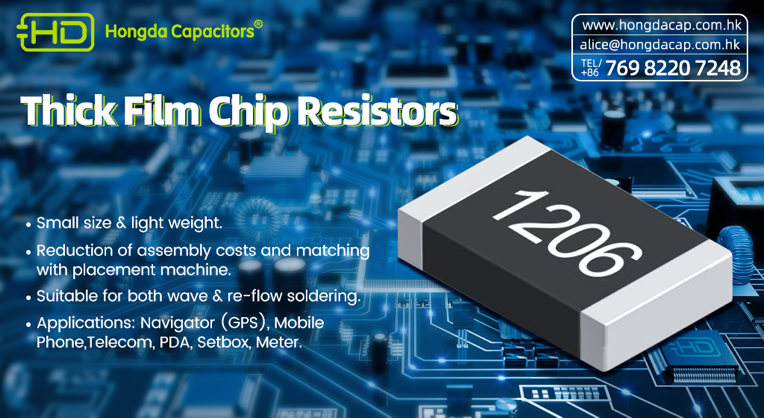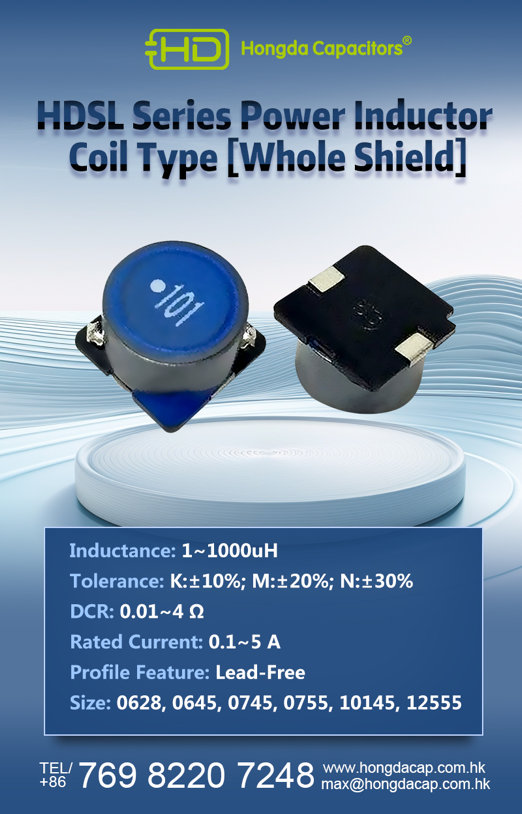2025-09-07
As the wheel of time rolls forward, the Fourth Industrial Revolution, driven by artificial intelligence (AI) and driven by new energy and life sciences, is surging toward us, profoundly reshaping the world. Computing power has become an inescapable topic across nearly every industry. From intelligent voice assistants to self-driving cars, from image recognition to precision medicine, from facial recognition to security surveillance, AI applications have permeated every aspect of our lives, driving social progress at an unprecedented pace. However, behind the powerful capabilities of AI lie a group of unsung heroes: passive components. While seemingly insignificant, they are the backbone of AI's "superpowers," enabling its powerful capabilities.

The rapid development of AI technology is reshaping the passive component industry landscape. Data centers, the backbone of AI computing power, have a massive demand for passive components for servers, storage, switches, and other components. Taking a specific server model as an example, AI servers equipped with eight GPUs see a 7-8x increase in MLCC usage compared to traditional models, while rack-based solutions see an increase of over 100-fold. On the consumer side, a high-end smartphone requires 20%-30% more passive components, such as MLCCs, to implement AI features like accurate voice recognition, image optimization, and fast data processing. It is estimated that by 2026, AI servers and AIPCs will add approximately $600 million to the overall potential market for MLCCs, exceeding $1.1 billion by 2030.
Not only in terms of quantity, AI is also driving performance changes in passive components. AI devices often transmit data at rates exceeding several gigabits per second. For example, 5G base stations incorporating AI for intelligent operations and maintenance require passive components with superior high-frequency performance to operate in the millimeter-wave band.
Furthermore, AI products are extremely sophisticated, and when used in automotive electronics, passive components must withstand harsh conditions such as high temperatures and vibration. This is driving the accelerated development of high-reliability and radiation-hardened products, leading to miniaturization. As MLCCs move toward ultra-small sizes, and inductors focus on reducing DC resistance and increasing self-resonant frequency, the market share of high-end passive components has steadily increased. This indicates that the rapid development of AI technology has had a significant and multi-dimensional impact on passive components.

MLCCs play a crucial role in AI circuits. Their rapid charge and discharge capabilities provide a clean, stable voltage environment for GPUs, preventing voltage ripple from damaging the chip and the entire system, ensuring the continuity and stability of AI computing.
Hongda Capacitor's high-temperature, high-capacitance MLCCs offer exceptionally high capacitance, ultra-high reliability, and a wide operating temperature range.
As the guardian of GPU chips, the core of AI, these high-capacitance capacitors are indispensable in the computing industry due to their compact size, light weight, and long lifespan. As large models reach trillions of parameters, these capacitors will continue to evolve towards smaller sizes, lower voltages, and higher capacitances. Hongda Capacitor is well-prepared to continue providing compact, high-capacity MLCCs for various AI devices, supporting increasingly complex computing tasks and ensuring stable system operation.

AI circuits place extremely high demands on current sensing. In practical applications, whether it's AI servers in data centers or control systems for intelligent robots, precise current detection is essential to provide real-time feedback to AI algorithms and help the systems make more accurate decisions.
Hongda capacitors and resistors feature low resistance and high resistance stability, as well as a low temperature coefficient, strong power handling capacity, and compact size. Their high stability, high precision, and excellent temperature characteristics make them indispensable components for current sensing in circuits. They are widely used in AI servers, playing a crucial role not only in power management and current control but also in ensuring stable circuit operation and improving system performance. They lay a solid signal foundation for the perception and decision-making stages of AI systems.

As AI technology advances toward higher frequencies and higher integration densities, the power supply process for the required chips becomes complex and sensitive. Current fluctuations, noise, and various interference factors all require robust filtering to ensure chip performance.
Hongda Capacitor's inductors feature high current carrying capacity, low resistance, high current tolerance, and high stability. Their fully enclosed magnetic shielding structure closes the magnetic circuit and provides strong resistance to electromagnetic interference. They are widely used in AI hardware systems such as data center servers, GPU accelerator cards, and edge computing devices. High-current inductors, as a crucial component of DC/DC converters, provide voltage conversion, voltage regulation, and filtering, ensuring clean and stable power for AI chips and other components, ensuring the efficient, stable, and reliable operation of complex AI electronic systems.
Though individually insignificant in the AI world, passive electronic components, with their unique functional characteristics, provide indispensable support and assurance for the stable operation, accurate perception, and efficient computing of AI systems, enabling the creation of a wide range of cutting-edge and practical applications.
In recent years, Hongda Capacitor has seized the market opportunities brought by the rapid development of AI and actively launched a variety of highly reliable and stable passive components, providing a comprehensive product line for leading companies in the AI server industry. The company's comprehensive product line of resistors, medium-, high-voltage, and high-temperature high-capacitance multilayer ceramic capacitors (MLCCs), and high-current inductors not only lays a solid foundation for the stable operation of AI systems but also provides crucial product and technical support for the vigorous development of my country's AI industry globally.
Going forward, Hongda Capacitor will continue to develop new passive component products and technologies tailored to AI needs. We will continuously optimize our products and processes, significantly enhancing the energy storage density of capacitors, the precision and stability of resistors, and the anti-interference capabilities of inductors. This will better serve the innovation and application expansion of AI technology, injecting new momentum and vitality into the global intelligentization process.